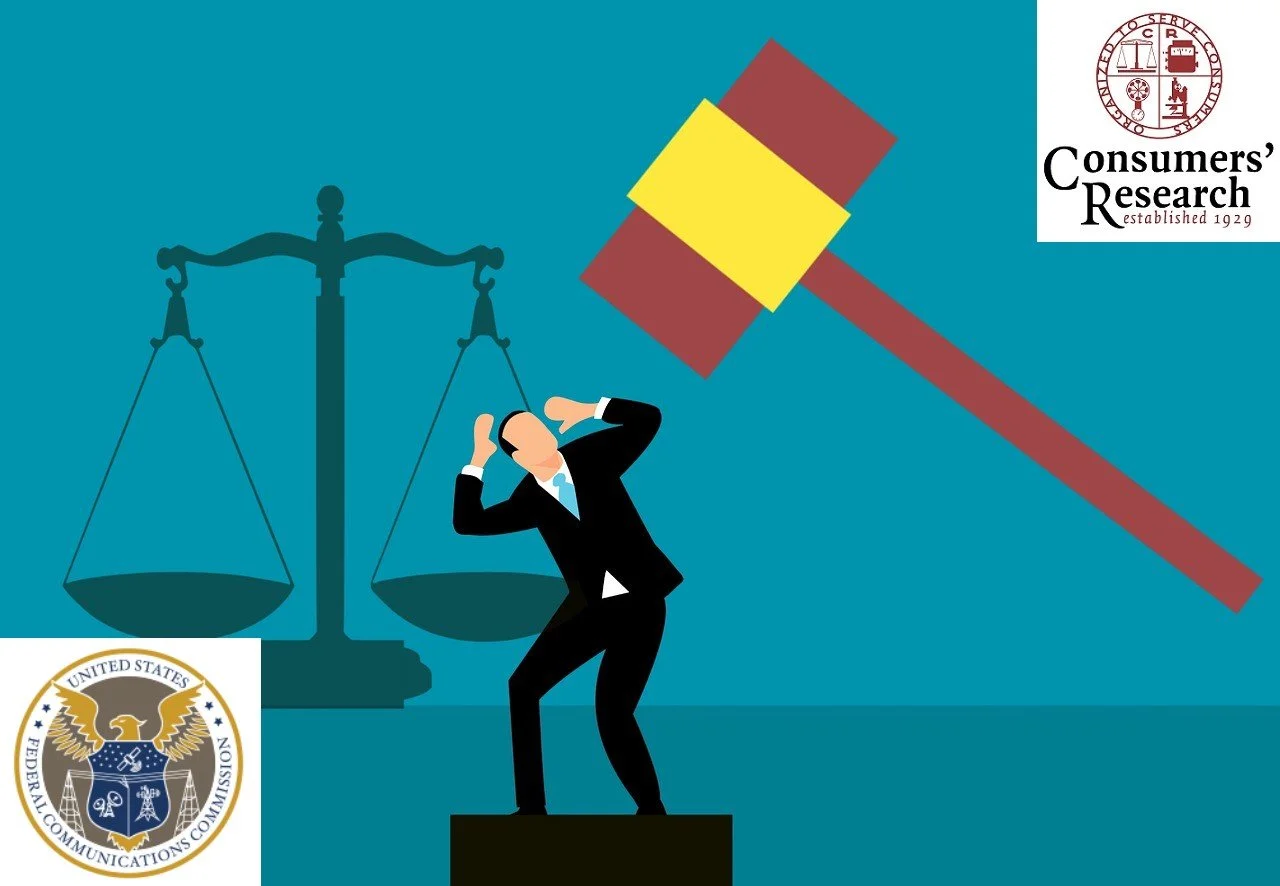Consumers’ Research Files Legal Challenge To FCC’s 4Q 2021 Universal Service Contribution Factor & Universal Service Fund System
September 30, 2021 – Nonprofit organization Consumers’ Research, communications provider Cause Based Commerce, Inc., and five individual consumers have filed a petition for review with the U.S. Court of Appeals for the Sixth Circuit challenging the Federal Communications Commission’s approval of the proposed fourth quarter 2021 universal service contribution factor.[1] The petition also generally challenges the legality of the universal service fund (USF).
On September 10, 2021, the FCC’s Office of Managing Director announced a proposed 29.1 percent USF contribution factor for the fourth quarter of 2021.[2] Because the FCC took no action on the proposed USF contribution factor within 14 days of the OMD’s Public Notice announcement, the 4Q 2021 contribution factor was “declared approved.”
The Petitioners claim the FCC’s approval of the 4Q 2021 contribution factor (and the proposed contribution factor itself) “exceeds the FCC’s statutory authority and violates the Constitution and other federal laws.” The petitioners assert the following nine arguments:
(1) Congress’s standardless delegation to the FCC of legislative authority to raise and spend nearly unlimited money via the Universal Service Fund violates Article I, section 1 of the U.S. Constitution.
(2) To the extent Congress permitted the FCC to re-delegate (or de facto re-delegate) to a private company the authority to raise and spend nearly unlimited money via the Universal Service Fund, Congress unconstitutionally delegated its legislative power to a private entity – the Universal Service Administrative Company (“USAC”) – in contravention of Article I, section 1 of the Constitution.
(3) The revenues raised for the Universal Service Fund pursuant to 47 U.S.C. § 254 are taxes and therefore Congress’s standardless delegation to the FCC of authority to raise and spend nearly unlimited taxes violates Article I, section 8 of the U.S. Constitution.
(4) To the extent Congress permitted the FCC to re-delegate (or de facto re-delegate) to USAC the authority to raise and spend nearly unlimited taxes for FCC-defined “universal service,” Congress unconstitutionally delegated its taxing power to a private entity in contravention of Article I, section 8 of the Constitution.
(5) To the extent Congress did not to permit the FCC to delegate to a private company the authority to raise and spend nearly unlimited money for FCC-defined “universal service,” the FCC’s subsequent re-delegation to USAC is beyond the FCC’s lawful statutory authority, regardless of whether the charges are deemed to be “taxes.”
(6) If USAC is determined not to be a private entity, and to the extent Congress permitted the FCC Chair to appoint USAC board directors, Congress violated the Constitution’s Appointments Clause.
(7) To the extent Congress did not statutorily permit the FCC Chair to appoint USAC board directors, the FCC has acted in excess of its statutory authority in doing so.
(8) The USF Tax Factor is a binding legislative rule, but the FCC did not comply with the [Administrative Procedure Act’s] requirements for rulemaking, nor with the Federal Register Act’s requirements for publication.
(9) The FCC’s action and inaction are otherwise contrary to law.
**********
[1] Consumers’ Research, et al v. FCC, et al, Case No. 21-3886 (6th Cir., filed Sep. 30, 2021).
[2] Proposed Fourth Quarter 2021 Universal Service Contribution Factor, CC Docket No. 96-45, Public Notice, DA 21-1134 (Sep. 10, 2021), https://docs.fcc.gov/public/attachments/DA-21-1134A1.pdf.





